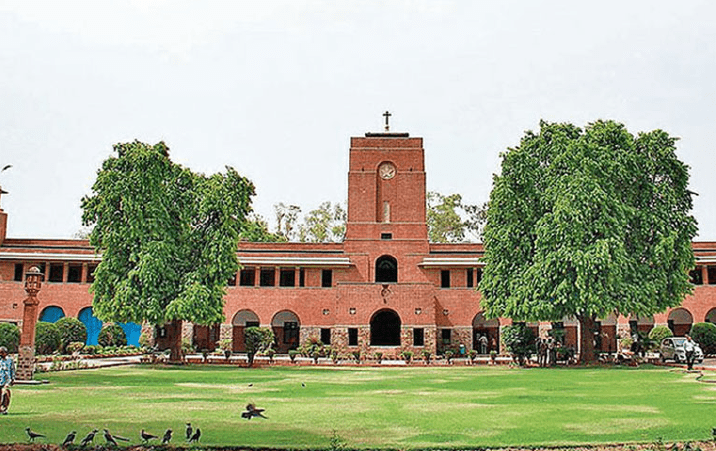The FYUP was a short-lived experiment, as with the change in power at the Centre in 2014, the programme was scrapped. Here’s a look at back at the FYUP and why it was shelved.
With the National Education Policy having been passed in the Academic Council meeting Tuesday, DU will now see a four year undergraduate programme (FYUP) being implemented from the next academic year. This, however, is not going to be the first time the university sees a change in its undergraduate programme.
In 2013, under Former Vice-Chancellor Dinesh Singh, DU had implemented the FYUP with the aim of aligning it more closely with universities in the West, particularly the US.
“The main difference between both is that while FYUP in 2013 was implemented only in DU, and was against the 10+2+3 National Education Policy in prevalence then, this time it has been done as part of NEP. It, therefore, has all the sanctions,” said DU Registrar Vikas Gupta.
Read also: Delhi University Decides To Implement NEP From 2022-23, Triggers Row
The FYUP was a short-lived experiment, as with the change in power at the Centre in 2014, the programme was scrapped. Here’s a look at back at the FYUP and why it was shelved.
Origin
The idea of a four year programme was first mooted by former HRD Minister Kapil Sibal under the UPA government. But in its concrete form, the FYUP was passed in an Academic Council (AC) meeting in December 2012, where six members dissented. There were protests against the programme from the beginning with the DU Teachers’ Association (DUTA) leading the protest. These protests gathered momentum over time with more teacher and student groups joining in.
Structure
Unlike the three year UG programme, the FYUP gave students the option of opting out of the course after the first year with a certificate, after the second year with a diploma, after the third year with a pass or programme degree, and the fourth year with an honours degree. Singh said this was done as many students dropped out during their course. FYUP had also had 11 compulsory ‘foundation courses’ – perhaps the most controversial part of the FYUP structure. Students were also to get the option of choosing their major and minor subjects. An additional course was on the ‘Integration of mind, body and heart’ – based on Gandhian values.
Criticism
The FYUP was criticised on broadly two grounds – the procedure which was adopted to implement it, and the structure itself. Several critics at the time said the implementation was “rushed” and done without consulting the stakeholders. They also said that DU did not have the necessary infrastructure and funds to support an additional year of teaching. But most of the criticism was reserved for the foundation courses which many believed “dumbed down” the UG programme.
Some of the questions asked in these courses were ‘What is the function of a library?’ and ‘What constitutes a balanced diet?’ Some teachers also pointed out that the option of exiting “institutionalised” drop outs in the university, rather than addressing it. Critics also pointed out that a fourth year of education may not be affordable to many from deprived backgrounds, creating a hierarchy among the students.
Rollback
As protests raged, and the BJP government came to centre, the FYUP was scrapped. UGC Chairman Ved Prakash who had earlier backed the reforms, did a complete U-turn, and orders were issued to Singh to scrap the controversial programme, just ahead of the admission season. Singh was also issued a showcause notice by the then HRD ministry – a first for any DU VC – for implementing FYUP without the Visitor’s approval.
Now with protests against the new four-year programme under National Education Policy , it remains to be seen what is in store for the Delhi University in the coming year.
Courtesy – The Indian EXPRESS








